When Jessica Bauer had an ultrasound at the 20-week mark, it uncovered something troubling.
“The ultrasound showed that my baby was too small for his age,” Jessica said. “The umbilical cord where it was attached to the placenta was too thin, and he wasn’t getting enough nutrients from the placenta.”
At 37 weeks, Jessica and her husband, Joel, traveled from their home in Alpena, Michigan, to Traverse City, where doctors admitted Jessica to a larger hospital than had been available back home.
Concerned about the baby’s low weight, doctors induced labor.
Alexander Bauer came into the world on May 22, 2018, at a mere 4.6 pounds.
For the first week of his life, Alex lived in the neonatal intensive care unit.
“He was having some trouble breathing,” Jessica recalled. “And he didn’t pass the newborn hearing test. One ear passed, the other did not.”
Alex also appeared to have issues with the bicuspid valve in his heart.
He faced other challenges, too. He had a small head measurement and the soft spot, or fontanelle, on top of his skull—normally allowing the skull to expand as a baby grows—had nearly closed up already.
“There was definitely something wrong,” Jessica said.
Her instincts as a mother went on full alert.
Soon after they returned home from the hospital with Alex, the Bauers took him to see an audiologist to re-test his hearing.
“Strange,” Jessica said. “This audiologist told us that Alex’s hearing was perfect.”
That didn’t seem right.
Jessica wanted to believe what the audiologist told them, but her intuition whispered, “No.”
At about 7 to 8 months old, Alex developed a respiratory illness. When his parents took him to doctors for treatment, they also reached out to another audiologist to again test his hearing.
This time, it would be a more intense hearing test, requiring Alex to undergo anesthesia.
The results were just as the Bauers had feared.
“He had severe to profound hearing loss in both ears,” Jessica said. “That was rough. Little did we know, however, that this would be the least of our problems.”
More red flags
It seemed like Alex’s challenges were piling up.
During his first year of life, he had to wear a helmet because he had a flat spot on the back of his head and because of a positioning problem with his neck.
Physical and occupational therapists worked with him during his toddler years, when his development appeared slower than others in his age group.
At his first birthday, the Bauers discussed cochlear implants to help his hearing.
It would be a big decision, involving brain surgery.
“We decided to take him to Ann Arbor for the surgery,” Jessica said. “The first ear went great.
“With the second ear, there was some brain fluid leaking,” she said. “His ears had to heal for a month before we could activate the implants, but about a full year before you can adjust them to exactly where they should be.”
Around this time, the Bauers took a trip to Spectrum Health in Grand Rapids, where they met with Laurie Seaver, MD, a medical geneticist with the Spectrum Health Helen DeVos Children’s Hospital Medical Genetics Program.
“I can say I was almost in denial when our doctor started talking about genetic testing,” Joel said. “But Alex wasn’t hitting any of his milestones. Jessica was wondering about autism.”
Jessica and Joel wanted answers.
“But at the same time, getting answers could be scary,” Jessica said.
Finding answers
Dr. Seaver met the Bauers in June 2019.
“Alex had had one genetic test done that came back with normal results, but he was small for his age, had failed his hearing tests, had some heart defects and valve abnormalities, development delays and autism was beginning to show up,” Dr. Seaver said.
Alex had enough health issues to warrant extensive genetic testing, the doctor said.
“I recommended exome sequencing, with all 20,000 genes tested at once,” Dr. Seaver said. “That’s a lot of genetic data, but I wanted to see all the probabilities.”
Dr. Seaver explained the process to the Bauers.
“She made genetics understandable for us,” Joel said. “Her passion for her profession was apparent and we were ready to go ahead.”
Alex and both parents underwent a blood test.
“Then we waited. You become somewhat numb, waiting for those answers,” Jessica said.
One day in September 2019, the phone rang in the Bauer home.
It was Dr. Seaver with the results.
“It was a shocker,” Jessica said. “She told us that Alex had something called TAF1 disorder, a severe intellectual disability. She said there were only 14 documented cases.”
Dr. Seaver explained that TAF1, or TATA-Box Binding Protein Associated Factor 1, is a good explanation for all of Alex’s health and developmental concerns.
“It’s a new genetic change that few doctors have ever seen before,” Dr. Seaver said. “It was first found in 2015—and with so few known cases, information about it is limited.
“It’s likely many more cases have been diagnosed than those we know about, but doctors don’t usually write medical papers about only one case.”
Dr. Seaver gathered information on two other cases in Michigan. She accessed an international database, GeneMatcher, which is used by doctors and patient families.
“We also found a Facebook support group about TAF1 and joined that,” Jessica said. “There are only 13 members.”
Through that, they found two other similar families in the Midwest.
“We hope that someday, when we no longer have social distancing, we can connect in person with these families,” Jessica said.
“The families also share their moments of joy and there’s a real comfort in seeing that,” Joel said.
Moments to celebrate
Knowing the source of their son’s health issues has given the Bauers some measure of comfort and reassurance as they navigate their steps forward.
“We talked to Dr. Seaver often on the phone, since we are so far away from Spectrum Health,” Jessica said.
“We learned that TAF1 affects only boys,” she said. “Since I was soon expecting our daughter, that eased our worries for her.”
They also learned Alex wouldn’t regress.
“We can’t change his condition, but we can help him—slowly—make progress,” she said.
Dr. Seaver has asked the Bauers to see her annually.
“With something so new and rare, we are constantly learning new information,” Dr. Seaver said.
That information will go a long way in helping the Bauers.
“It turns out that not knowing is the most terrifying part,” Joel said. “Knowledge is power. It’s good to have a name for what is happening with Alex. Genetic testing turned out to be an amazing tool for us—and for Alex.”
Jessica said she and her husband want to give Alex everything he needs—and that requires knowing how best to help him.
“As hard as it can be to get this kind of news about your child, it helps us to know how to help him,” Jessica said.
“Now we take it day by day,” she said. “We celebrate every little thing Alex does. The whole family celebrates.”
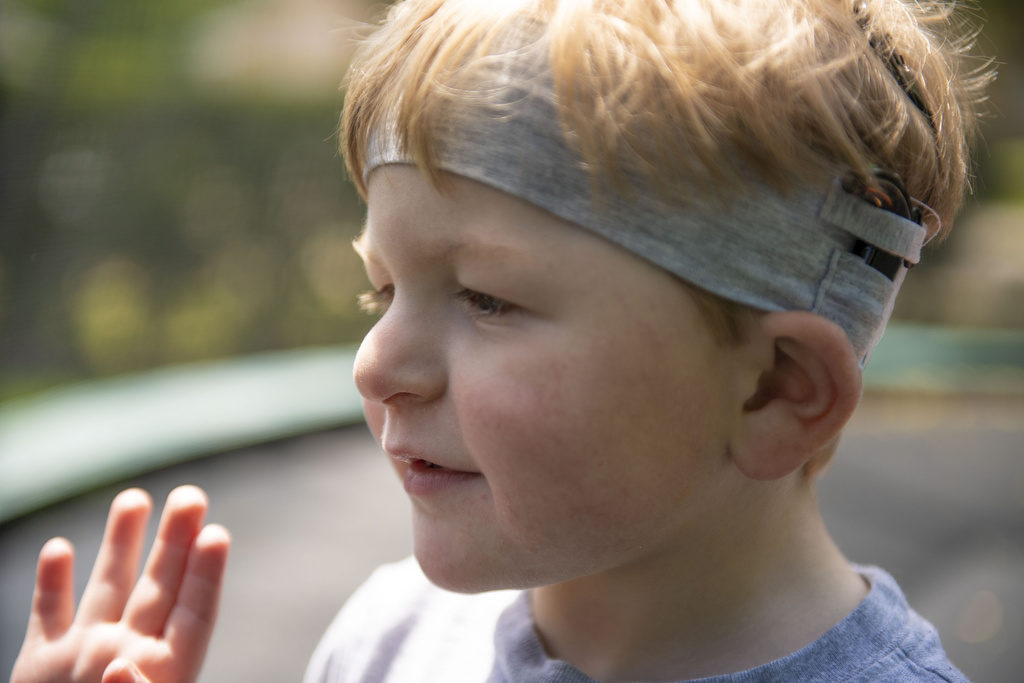

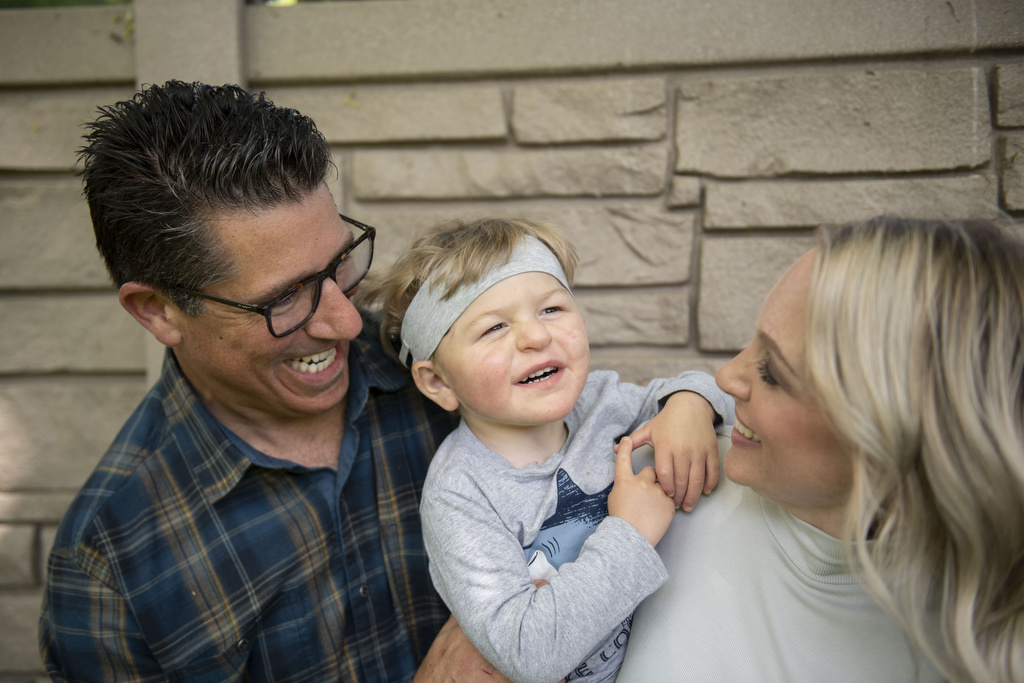

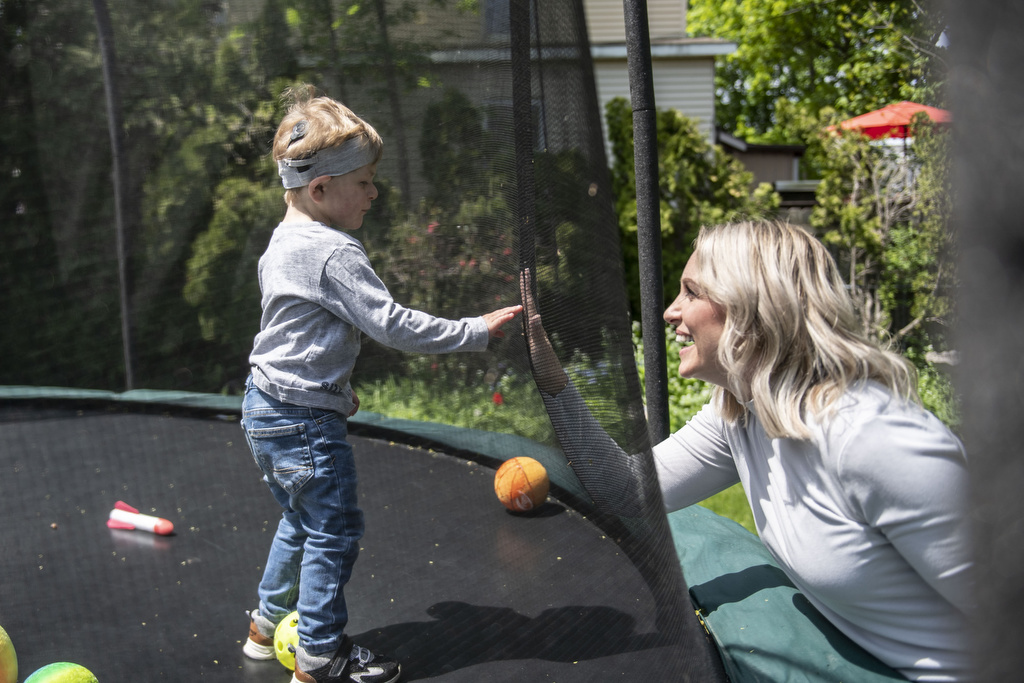

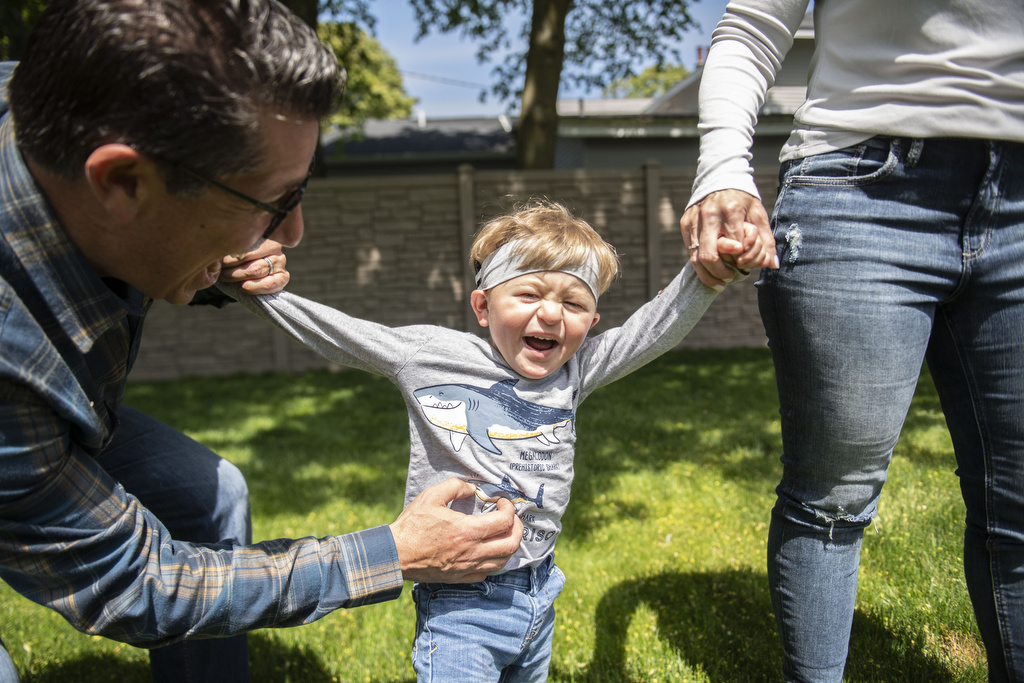








 /a>
/a>
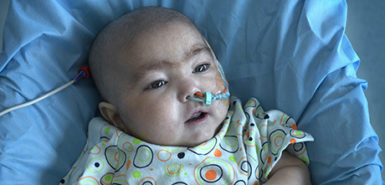 /a>
/a>
 /a>
/a>
Wonderful story.
I assume he has an ABI ( auditory brain stem implant.
Which is brain surgery.
Standard cochlear implants are done differently and what the biggest majority of recipients have and does not involve the brain at all.
Clarifying this for those don’t know and may be afraid of the term brain surgery..